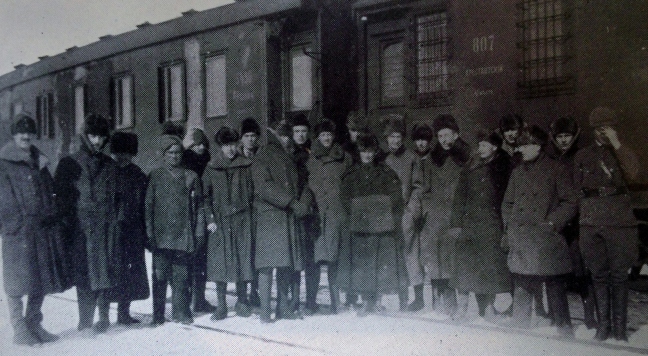On 23rd December 1919, the Siberian Army fought its final battle, whilst the despondent “Supreme Leader”, Alexander Kolchak was held up in his train carrying the Imperial Treasury, by the Czech Legion at Krasnoyarsk.
Reporting on the comprehensive defeat, the Manchester Guardian commented: “the shattered remains of Kolchak’s army scattered and all stores, munitions and practically all artillery were lost”. General Kappel issued orders to establish a defensive line near Krasnoyarsk, but this proved impossible as 45 echelons of the White Army were stuck on the railway line with frozen engines stalled between Bogotol and Kozulka.
The following evening, the last British contingent out of Omsk made the best of their situation. Forty people, squeezed into a carriage designed for 16, ate their Christmas Eve supper of soup, rice and vodka. A whisky bottle was shared and they held an impromptu sing-song until 11.30 pm with a magnificent rendition of Helen of Troy and Give Me The Moonlight.
 The last British group that escaped from Omsk in the winter of 1919
The last British group that escaped from Omsk in the winter of 1919
 Trans Siberian Railway Line From Omsk To Irkutsk – 1,500 Miles
Trans Siberian Railway Line From Omsk To Irkutsk – 1,500 Miles

 The last British group that escaped from Omsk in the winter of 1919
The last British group that escaped from Omsk in the winter of 1919 Major Leonard Vining of the Royal Engineers
Major Leonard Vining of the Royal Engineers The rebuilt station at Novo-Nikolaevsk, now named Novosibirsk.
The rebuilt station at Novo-Nikolaevsk, now named Novosibirsk.